“Six Months, No Meeting: Lorain’s Records Commission Falls Silent—and Out of Compliance”
How a Legally Required Oversight Body Went Dark, and Why It Should Matter to Every Taxpayer
By Aaron Knapp | Lorain Politics Unplugged | July 22, 2025
“They Were Supposed to Meet. They Didn’t.”
Under Ohio law, every municipal government is required to have a functioning Records Commission—an oversight body designed to prevent the illegal destruction or concealment of public documents. The law isn’t vague. Section 149.39 of the Ohio Revised Code mandates that these commissions meet at least once every six months. And yet, as of today—July 22, 2025—the City of Lorain has failed to do so. The clock ran out. No meeting has been held since July 29, 2024.
They were supposed to meet.
They didn’t.
That’s the story—and the scandal.
A Law with Teeth, Ignored with Shrugs
Ohio Revised Code §149.39 isn’t ceremonial. It exists to protect public integrity, ensure retention schedules are enforced, and safeguard documents that citizens and journalists rely on to hold officials accountable. It requires the Records Commission to do four things:
Meet every six months.
Review all proposed record retention or disposal schedules.
Approve or deny the destruction of records through RC-1, RC-2, and RC-3 forms.
Maintain formal documentation of its actions.
When a government fails to do that, it opens the door to unlawful destruction of evidence, concealment of corruption, or—at minimum—gross negligence in safeguarding taxpayer information.
And yet, Lorain’s Records Commission—chaired by Mayor Jack Bradley—has not convened in twelve full months. No posted agenda. No minutes. No votes. No public discussion. Silence.
The Last Meeting on Record
The last documented Records Commission meeting occurred on July 29, 2024. That session included updates from Human Resources, the Building, Housing, and Planning Department, and the Pretreatment/EPA Office. The commission approved multiple RC-2 (retention) and RC-3 (disposal) requests. And then?
Nothing.
Despite setting a tentative meeting date for January 2025, no meeting minutes, public notice, or certification exists showing that meeting ever occurred. Nor was one held by July 2025.
That violates the plain text of Ohio law. But it also reflects a deeper problem: Lorain’s paper trail has a habit of going cold when scrutiny heats up.
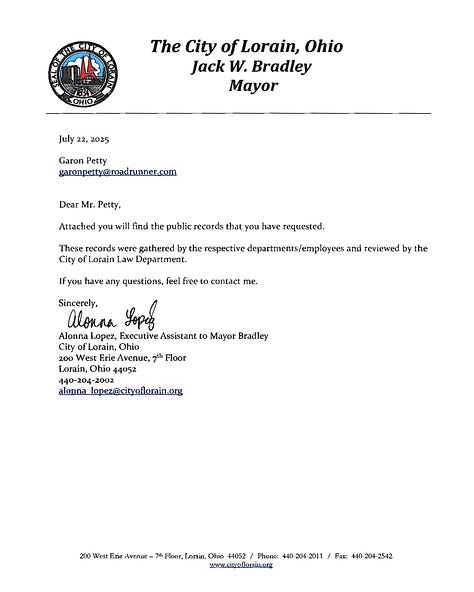
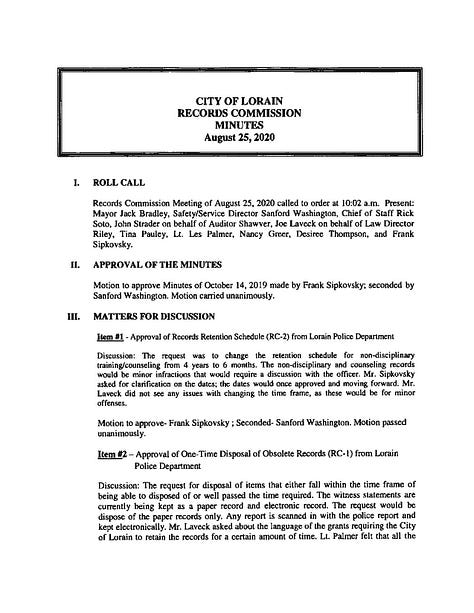
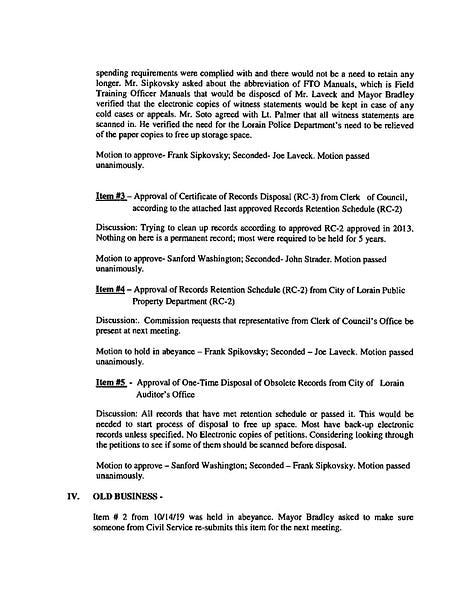
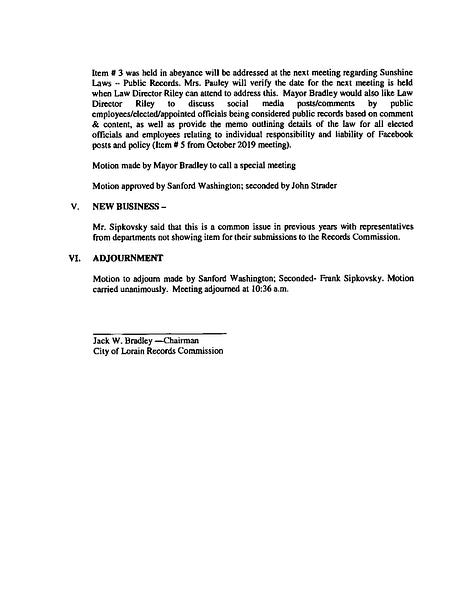
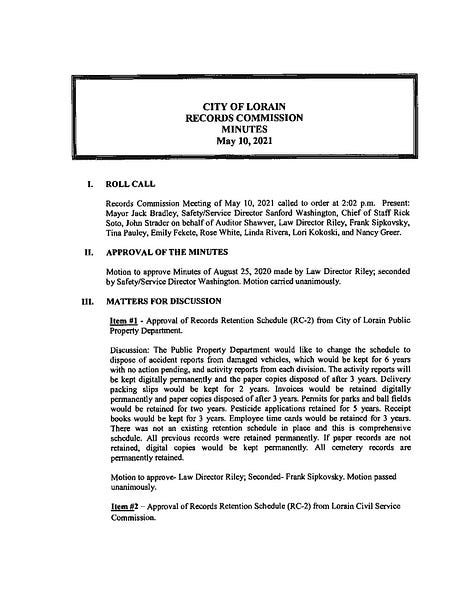
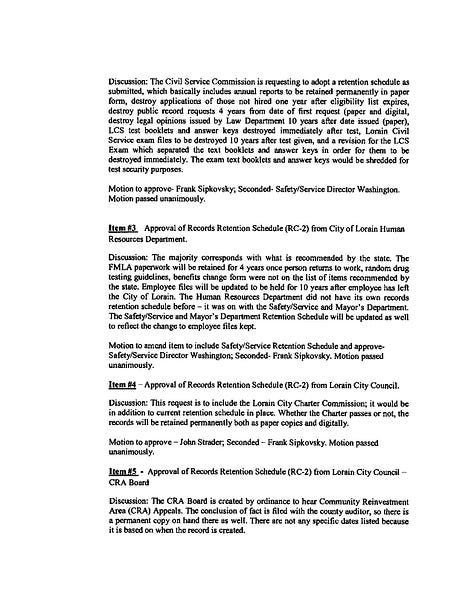
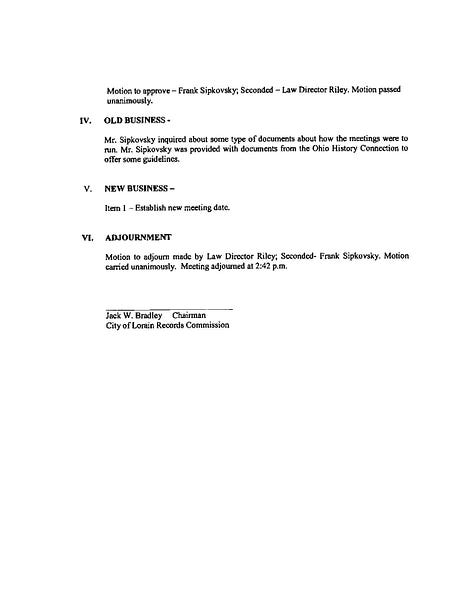
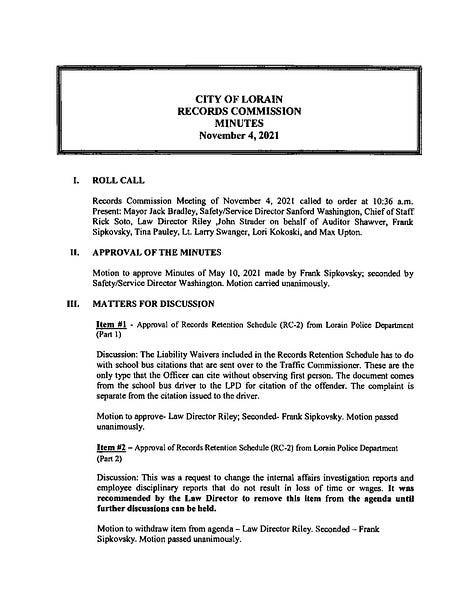
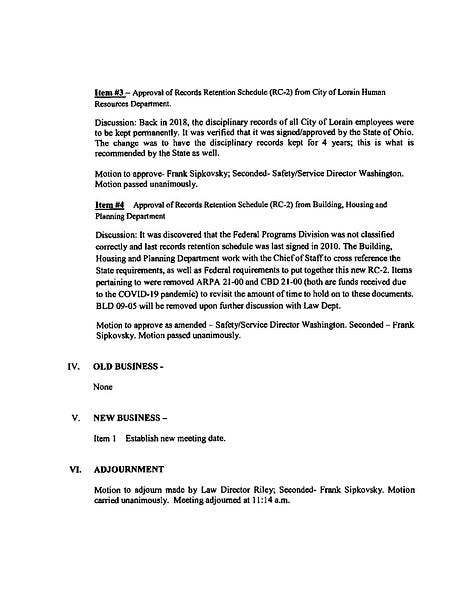
Why It Matters: Public Records, Private Dealings
The Records Commission doesn’t just review administrative junk mail. It holds power over:
Police disciplinary files
Council meeting recordings
ARPA and COVID grant records
Utility billing disputes
Internal Affairs investigations
Emails that could document retaliation, fraud, or civil rights violations
Without meetings, these records cannot lawfully be destroyed. Any city department that did so without updated commission approval in the past year may have committed a violation of the Public Records Act—or worse.
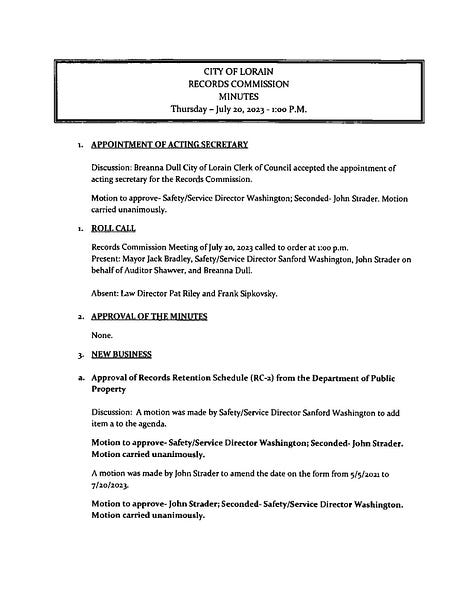
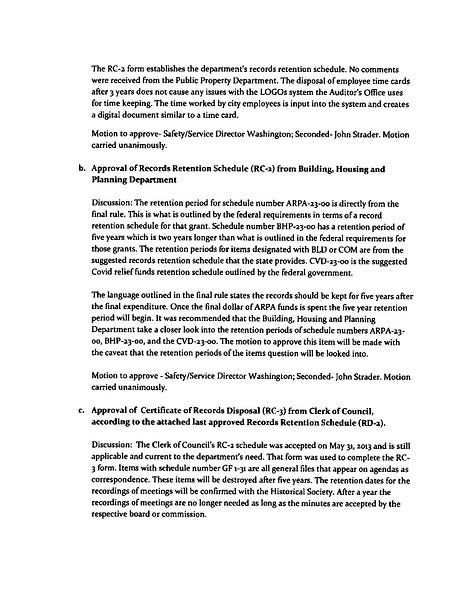
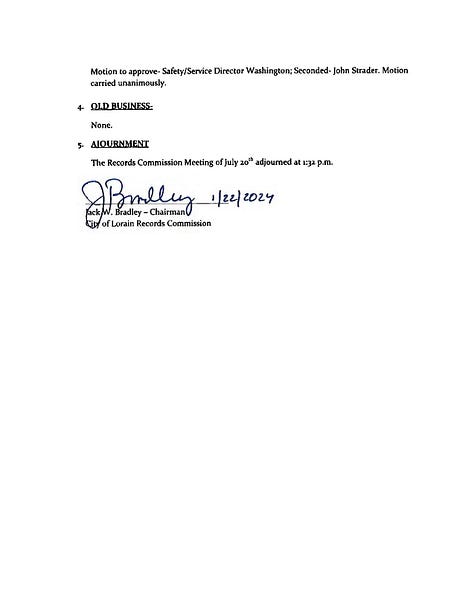
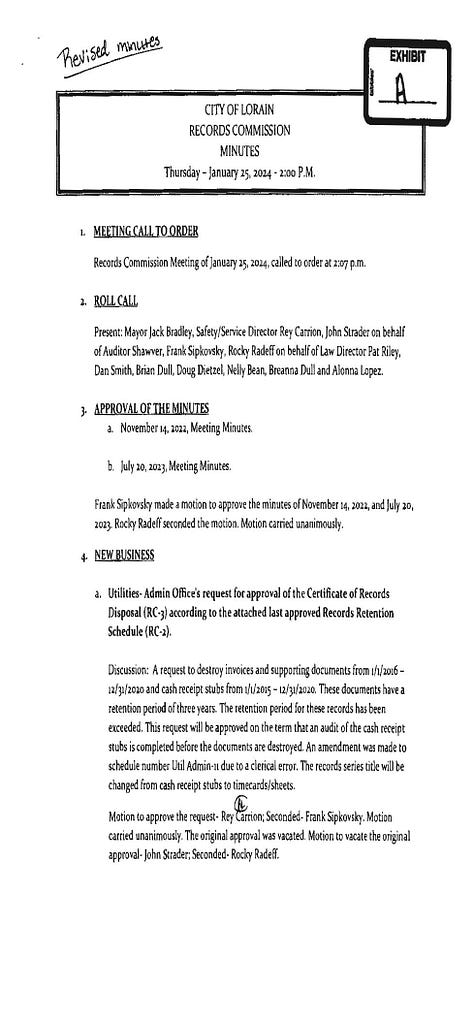
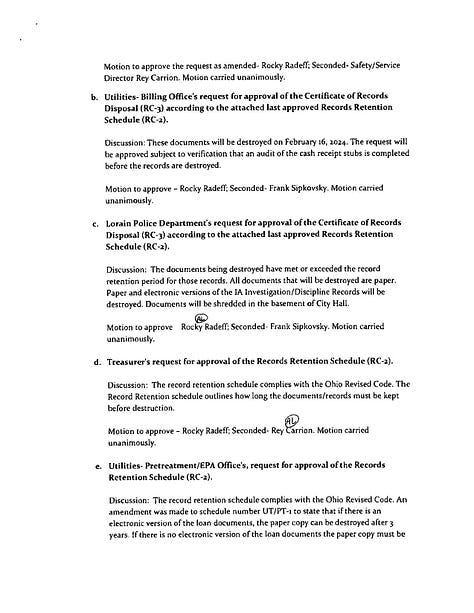
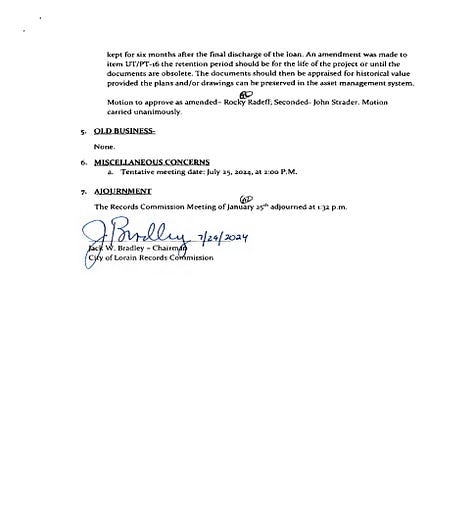
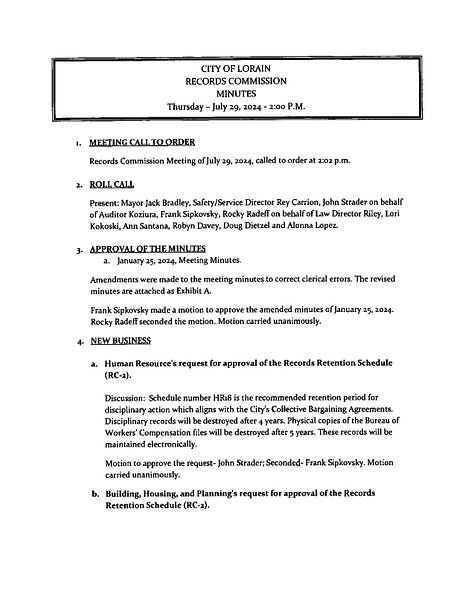
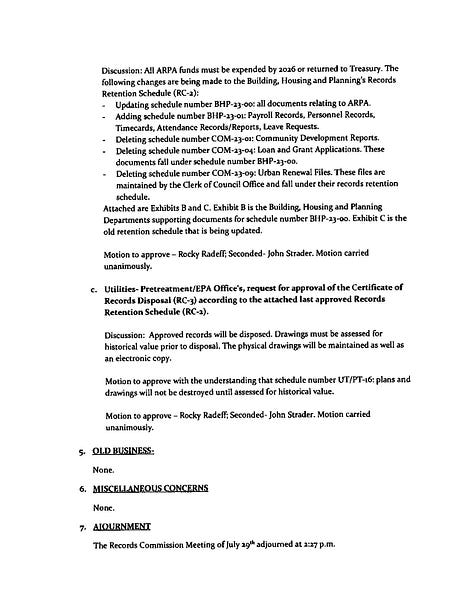

A Pattern of Disregard
This is not a paperwork mistake. It’s part of a growing pattern. In the past year alone:
The Mayor’s Office denied the existence of emails that were later recovered through third parties.
The Law Department cited ongoing investigations to block public access, even after cases were closed.
The Police Department released body cam footage selectively, but claimed CLEIRs exemptions when challenged.
Now, the city’s own oversight body—tasked with approving record handling procedures—has failed to meet the most basic legal threshold: showing up.
Where’s the Accountability?
Mayor Jack Bradley serves as Chairman of the Records Commission. He is legally responsible for calling meetings and ensuring compliance. So why didn’t he?
Where were:
Law Director Pat Riley, who regularly attends and advises the commission?
Safety-Service Director Rey Carrion, another permanent member?
City Council President Joel Arredondo, who has remained silent despite being custodian of legislative records?
Not one of these leaders raised a public objection to the year-long absence of a meeting.
Final Thought: The Price of Neglect
When a city stops keeping records properly, it stops keeping itself honest.
Every resident of Lorain has a stake in the city’s data—whether you’re trying to fix a pothole, file a complaint, challenge a tax lien, or investigate misconduct. The Records Commission isn’t optional. It’s your safeguard.
And as of July 22, 2025, it’s out of order.
Legal Disclosure:
This article is based on official meeting minutes obtained through a public records request and reviewed for accuracy as of July 2025. The conclusions expressed reflect both verified documentation and protected opinion commentary under the First Amendment. Any omissions in the city’s public posting or record-keeping are the responsibility of those in office. All citizens are encouraged to request their own copies and challenge denials through the Ohio Court of Claims or Attorney General’s Public Records Unit.





